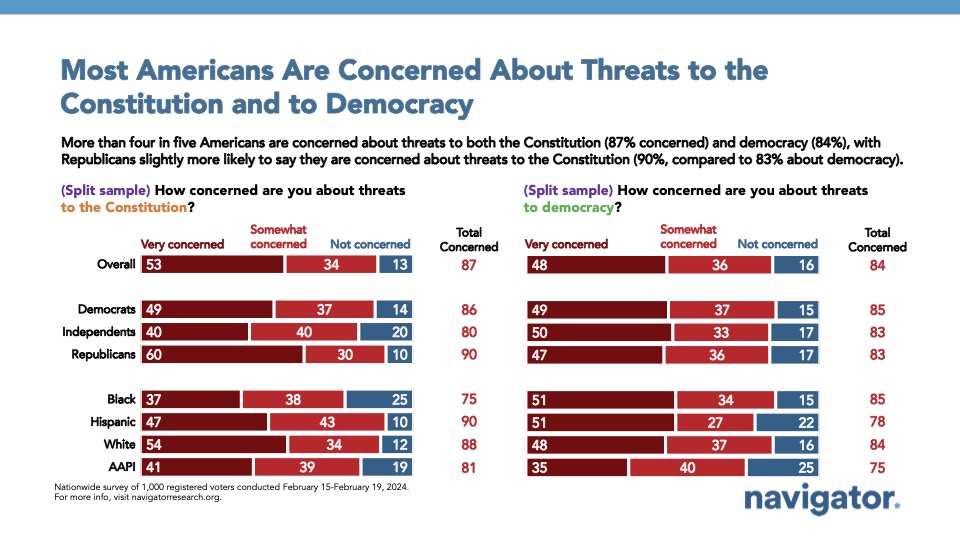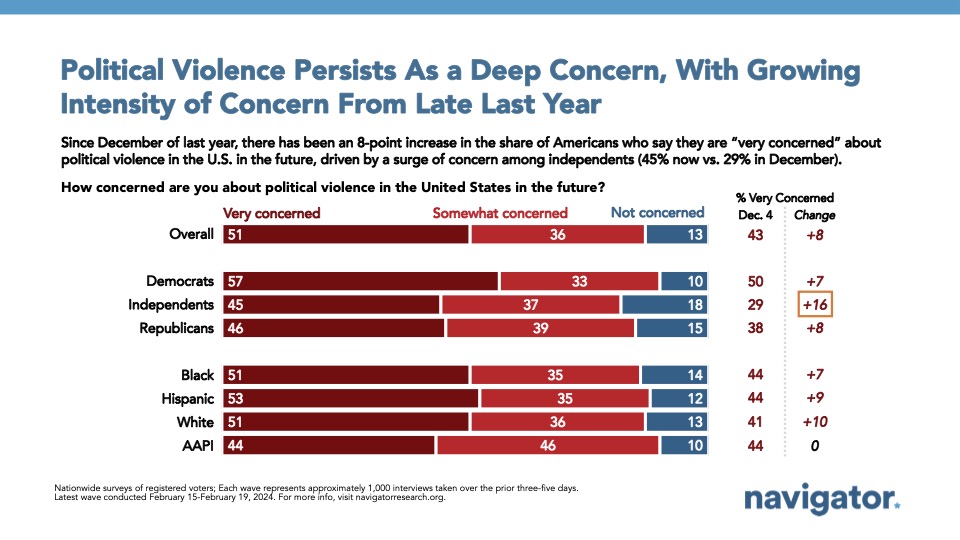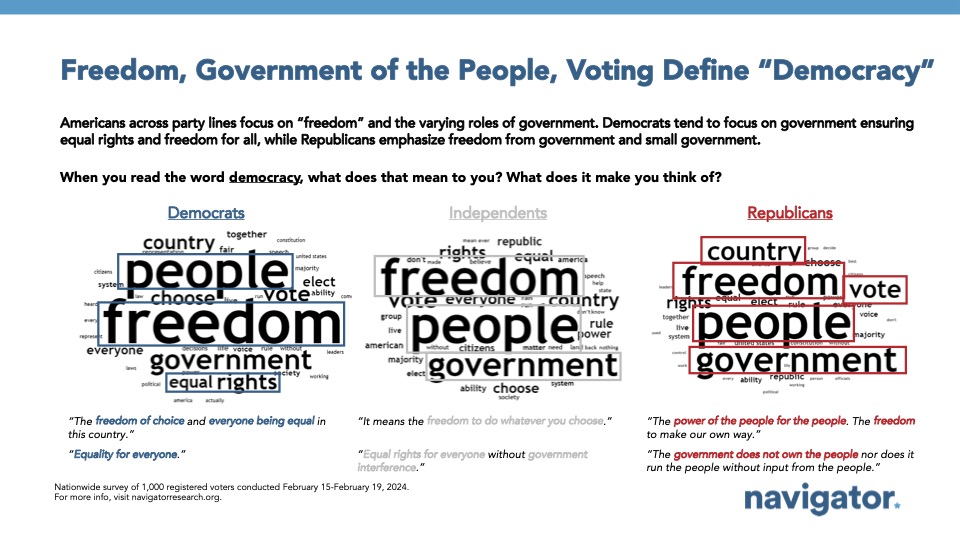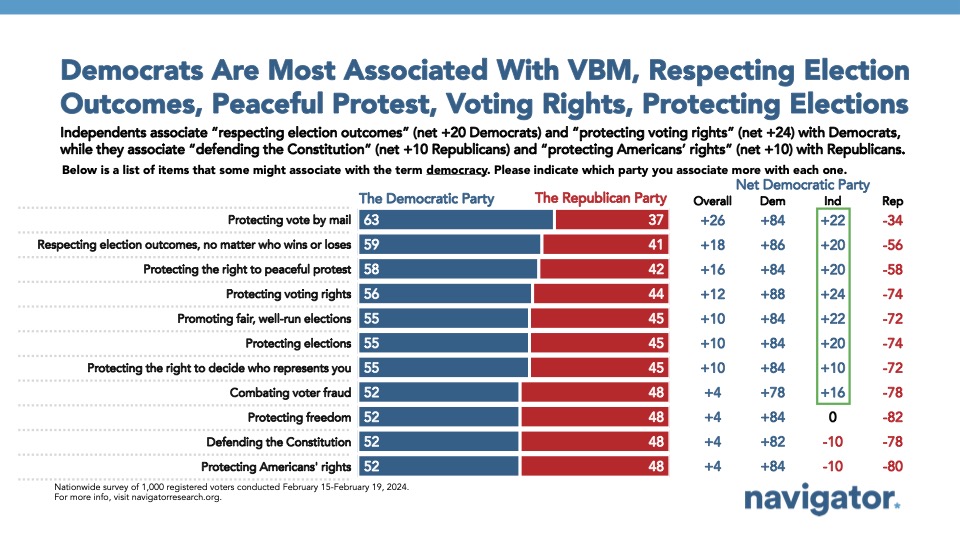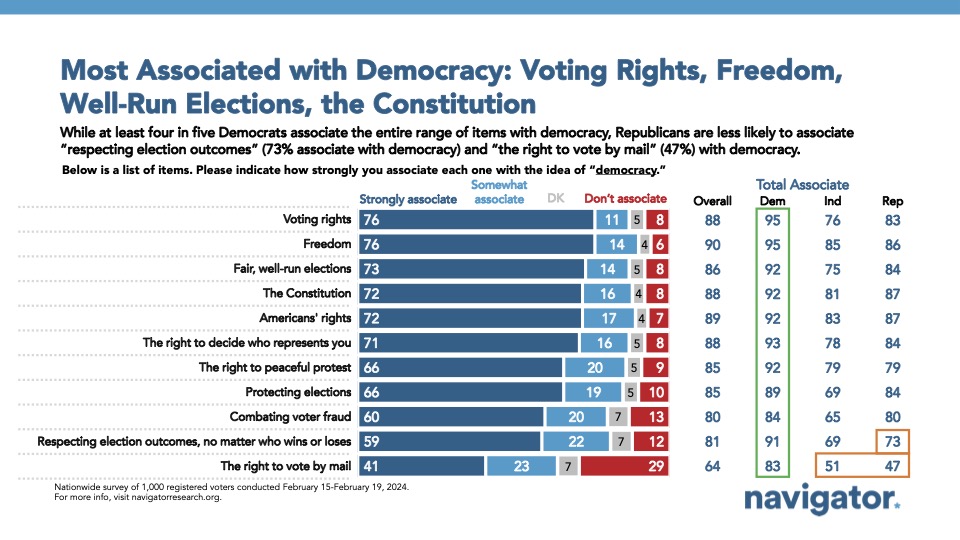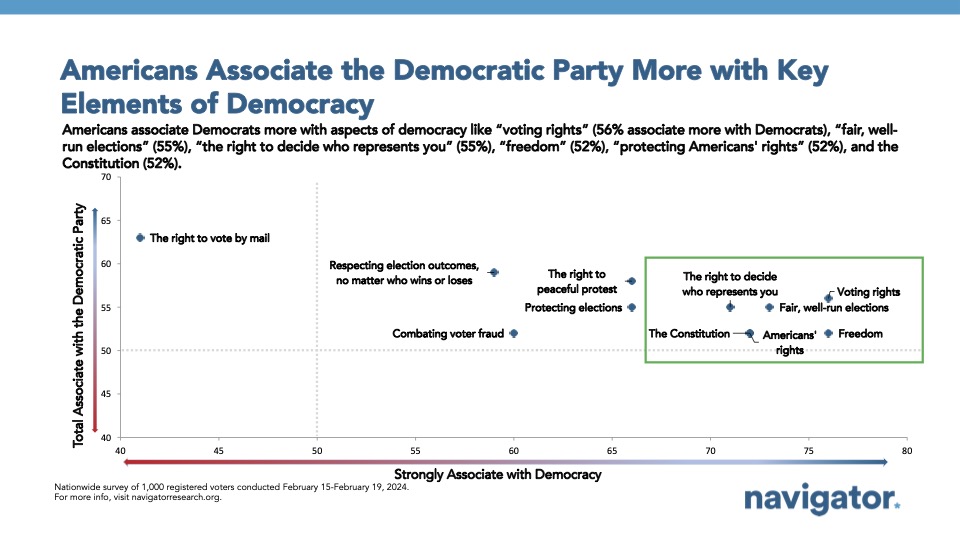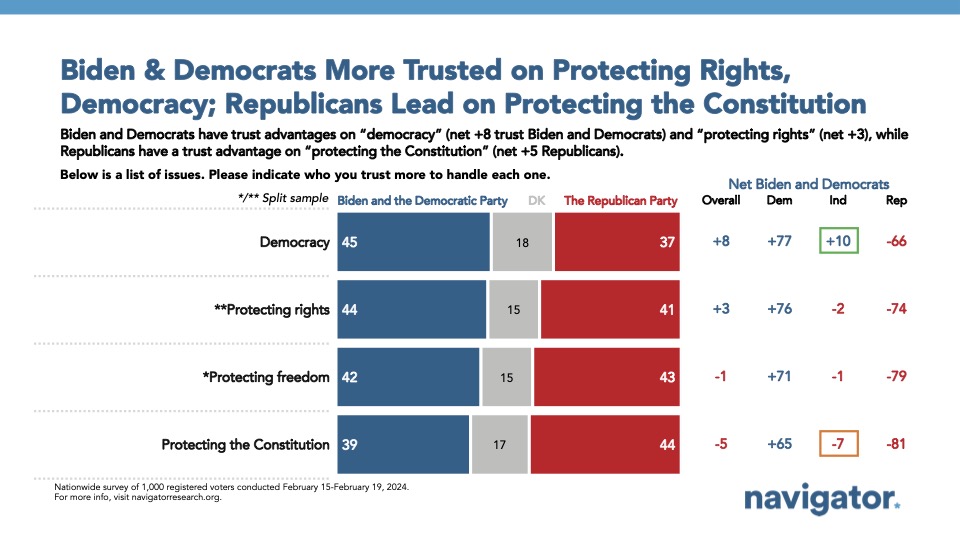Poll: Threats to Democracy
This Navigator Research report contains polling data on how Americans define democracy, terms Americans most associate with the idea of democracy, and the level of concern Americans have about threats to both democracy and the Constitution.
A vast majority of Americans are concerned about threats to the Constitution and democracy, and the future threat of political violence.
Nearly nine in ten Americans are concerned about threats to the Constitution (87 percent), among which over half are “very” concerned (53 percent). This includes 90 percent of Republicans (60 percent “very” concerned), 86 percent of Democrats (49 percent “very” concerned) and 80 percent of independents (40 percent “very” concerned). Americans over the age of 65 have higher levels of concern (94 percent) compared to those under the age of 35 (78 percent concern). Over four in five Americans are also concerned about threats to democracy (84 percent, including 48 percent who are “very” concerned), including 85 percent of Democrats (85 percent) and 83 percent of both independents and Republicans.
- In an open-ended question defining democracy, many cited “freedom,” the rights of the “people,” “government,” and voting.
- 87 percent of Americans are concerned about future political violence, including 51 percent who are “very” concerned. The share of those who are “very” concerned has increased by 8 points since our December survey (from 43 percent to 51 percent), including a 16-point uptick among independents (from 29 percent to 45 percent), an 8-point uptick among Republicans (from 38 percent to 46 percent), and a 7-point uptick among Democrats (from 50 percent to 57 percent).
Americans associate things like “freedom,” the rights of the “people,” and “voting” with the concept of democracy.
Freedom, voting rights, fair and well-run elections, the Constitution, and the right to decide who represents you are the terms most associated with democracy, and each of these terms are more associated with the Democratic Party. Among a list of items, Americans associate the following most with democracy: “freedom” (90 percent), “Americans’ rights” (89 percent), “voting rights” (88 percent), the Constitution (88 percent), “the right to decide who represents you” (86 percent), and “fair, well-run elections” (86 percent). Across parties, “freedom” is one of the primary words associated with democracy (95 percent Democrats, 86 percent Republicans, 85 percent of independents).
- Americans associate the Democratic Party more with all of the terms associated with democracy, including an 18-point higher association with “respecting election outcomes, no matter who wins or loses” than Republicans (59 percent the Democratic Party – 41 percent the Republican Party), a 12-point association advantage on “protecting voting rights” (56 percent the Democratic Party – 44 percent the Republican Party), and a 10-point association advantage on “promoting fair, well-run elections” (net +10; 55 percent the Democratic Party – 45 percent the Republican Party).
- Other terms more narrowly associated with the Democratic Party include “defending the Constitution” (net +4; 52 percent the Democratic Party – 48 percent the Republican Party), “protecting Americans’ rights” (net +4; 52 percent the Democratic Party – 48 percent the Republican Party), and “protecting freedom” (net +4; 52 percent the Democratic Party – 48 percent the Republican Party).
Americans trust Biden and Democrats more than Republicans on democracy and associate Democrats more with important aspects of democracy.
President Biden and Democrats are more trusted to handle democracy and protecting rights; however, Republicans are narrowly more trusted when it comes to protecting the Constitution. By an 8-point margin, more Americans trust Biden and Democrats to handle democracy (45 percent Biden/Democrats – 37 percent Republicans), including a trust advantage of 10 points among independents (32 percent Biden/Democrats – 22 percent Republicans; 46 percent of independents are not sure which party they trust more). Trust in Biden and Democrats over Republicans is highest among Black Americans (net +51), Asian-American Pacific Islanders (net +45), and Hispanic Americans (net +19), while the parties split evenly among white Americans (net -2; 40 percent Biden/Democrats – 42 percent Republicans).
- Biden and Democrats hold a narrow trust advantage on “protecting rights” (net +3; 44 percent Biden/Democrats – 41 percent Republicans) and are evenly divided on who to trust with “protecting freedom” (net -1; 42 percent Biden/Democrats – 43 percent Republicans).
- By a 5-point margin, more Americans trust Republicans in protecting the Constitution (39 percent Biden/Democrats – 44 percent Republicans), including by a 7-point margin among independents (26 percent Biden/Democrats – 33 percent Republicans; 40 percent say they are unsure).

